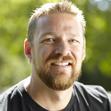Begin at the Beginning: On Starting to Write a Novel
 I’m teaching a novel-writing class to my community college students this semester. As we gathered together in the classroom this week, I gave them their first assignment: Start Your Novel.
I’m teaching a novel-writing class to my community college students this semester. As we gathered together in the classroom this week, I gave them their first assignment: Start Your Novel.
Clearly, this is easier said than done. As I looked into the faces of my students, I knew that they needed more direction.
“Begin at the beginning,” I said. “It’s easy.”
We were all readers before we were writers, and as such, our ideas of beginnings have been forever skewed. We tend to confuse the experience of the reader with the work of the writer.
My students are smart, and many of them have already written some very good short stories in a previous class, and have read and analyzed the craft of a great deal more. They have good instincts and inclinations.
“It needs to have a good hook,” one of them said. And she was right. But I explained that sitting around all day trying to come up with that hook was not going to do anyone any good.
To illustrate my point, I pulled up a website that had gathered its list of the 100 best opening lines in literature. Many of the expected novel openings were there – Ishmael casually greeting the reader, Dickens’ paradox of two cities, and Hemingway’s introduction of his aging Cuban fisherman Santiago.
Were these the first lines each of these writers composed? Did Melville sit down one day and write “Call me Ishmael”?
Every book has two beginnings. But the reader is only privy to one. And the author must begin in a much different place. Before the story can start, the process must be put into motion. These distinct beginnings are a matter of point of view (that of the writer, and of the reader) and are often separated by years, sometimes by centuries.
Think of the opening of any novel as the beginning of a stage play. The house lights come down, the actors take their places and the curtain parts as the stage lights come up. The play begins – for the audience.
But the writer begins a story much earlier. Someone had to make careful decisions at every step along the way. Actors had to be cast in the proper roles. The interpretations of lines and movements had to be discussed, reworked, blocked and refined by actor and director in collaboration. There were sets to design, build and paint. The sound, lighting and costuming had to be planned and executed in detail. In fiction, all of this must be undertaken by the author before the expectant moment of “beginning” occurs for the reader on page one. It’s messy, tedious, and necessary.
So where does a book begin for an author? In setting the stage. A writer must build an inventory of potential, both good and bad, for a protagonist. He or she must create the chance for conflict to challenge and define characters. The one thing a book needs more than anything in its infancy is momentum.
In order to sustain this momentum, and build the potential energy that will be changed into kinetic energy through the narrative, an author must be okay with rough, unproven, inelegant prose, awkward characters, and under-developed plots. One must simply keep going, push through the doubt, and work every day to close the gap between the beginning of novel writing (and its inherent sawdust, discarded scraps and bloodied knuckles), and the beginning of the novel.



